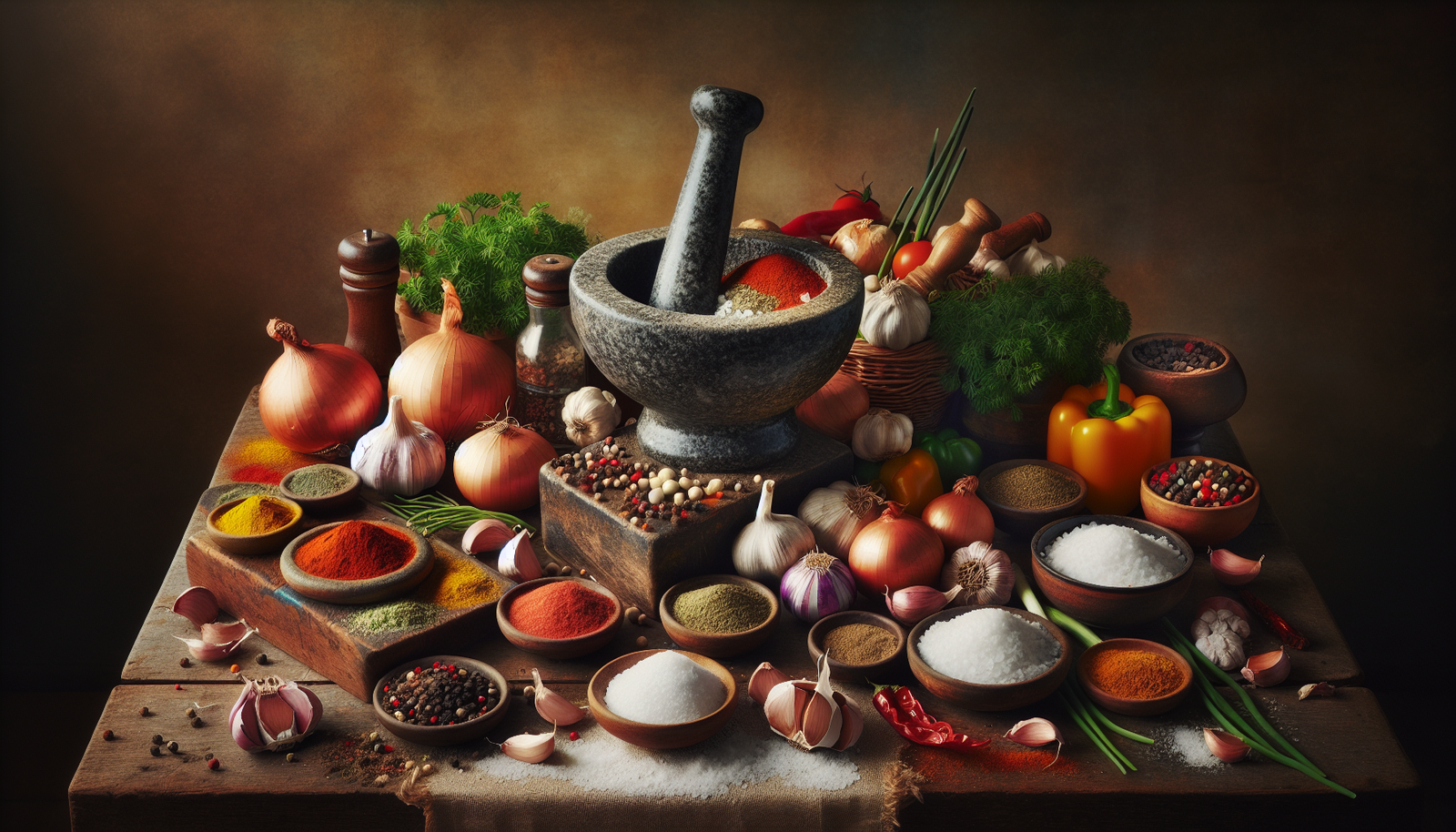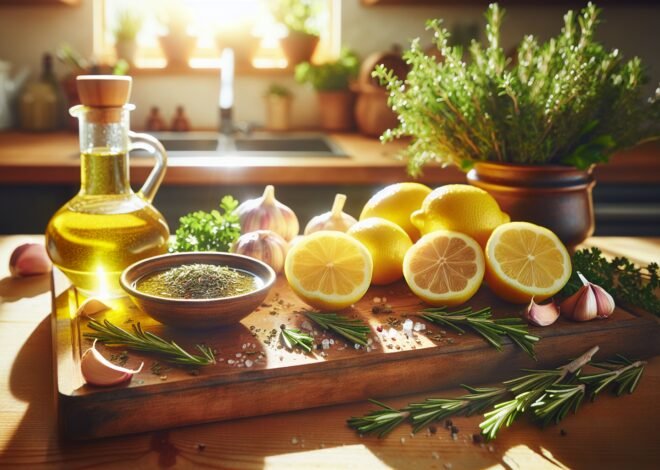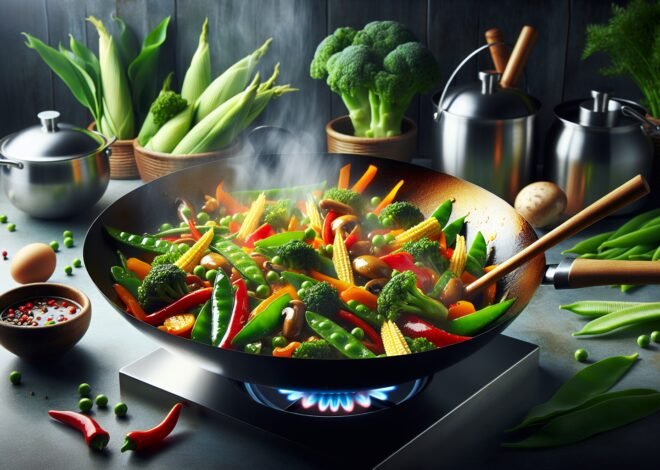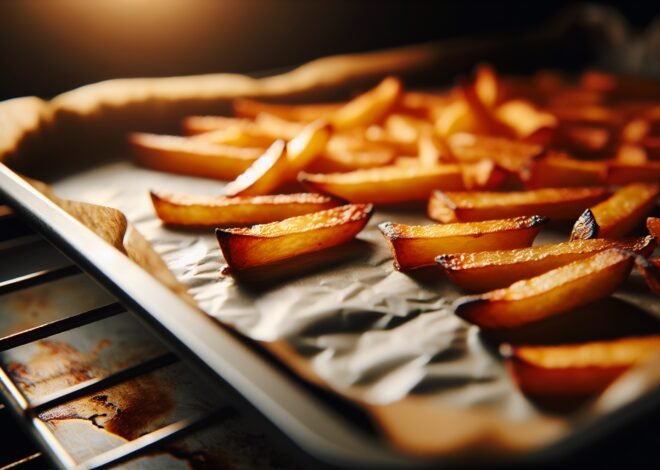
Essential Seasoning Tips to Elevate Your Cooking
Seasoning can transform any dish from bland to outstanding. By learning the essential seasoning techniques, you can elevate your cooking game. This guide covers fundamental tips that will help you add the perfect amount of flavor to your meals, making every bite unforgettable.
Why Seasoning is Important in Cooking
Seasoning transforms a dish from bland to flavorful. It’s the secret weapon that can elevate your cooking to new heights. Understanding its role in cooking is essential for every home chef.
How Seasoning Enhances Flavor
Seasoning is the art of bringing out the best in your ingredients. It doesn’t just add salt or spice; it magnifies the natural flavors of the dish. Imagine a ripe tomato sprinkled with a pinch of salt—it suddenly tastes sweeter and juicier. This is because seasoning enhances the flavors already present in your food.
The key to successful seasoning is balance. Too much salt can overpower; too little can leave a dish tasting flat. It’s about finding that sweet spot where all flavors harmonize. Good seasoning can make even simple ingredients taste extraordinary. It highlights the uniqueness of each component, creating a symphony of flavors that dance on your palate.
Basic Seasoning Ingredients
A well-stocked kitchen should have a selection of essential seasoning ingredients. Salt is the cornerstone of seasoning. It enhances taste and brings out the depth of other flavors. Pepper, often paired with salt, adds a spicy kick that can vary depending on the type used.
Herbs and spices are crucial for adding complexity. Basil, thyme, and oregano offer herbal notes, while cumin, paprika, and coriander introduce warmth and earthiness. Each spice and herb has its own personality, and experimenting with them can lead to delightful discoveries.
Beyond salt and spices, consider using acids like vinegar or lemon juice. These ingredients can brighten up a dish and add layers of flavor. Oils, such as olive or sesame, also play a role in seasoning by adding richness and mouthfeel.
Common Mistakes in Seasoning
Seasoning is an art, but mistakes are common. Over-seasoning is a frequent error, often committed in a rush or by not tasting as you go. It’s better to start with a small amount and adjust gradually.
Another mistake is forgetting to season at different stages of cooking. Adding seasoning only at the end can result in an unevenly flavored dish. Layering flavors throughout the cooking process ensures each component is well-seasoned.
Using stale spices is another pitfall. Spices lose potency over time, and using them past their prime can lead to lackluster results. Regularly check your spice cabinet and invest in fresh herbs and spices for the best flavor.
Key Seasoning Techniques
Mastering key seasoning techniques can transform your dishes from ordinary to extraordinary. These methods help you build layers of flavor and create a nuanced taste experience.
Layering Flavors
Layering flavors is about adding complexity to your dishes. It’s not just about throwing all ingredients in at once. Start with a base flavor, such as onions or garlic, and build from there. As the dish cooks, add spices and herbs at different stages.
Consider using a variety of seasoning methods. Marinate proteins before cooking for depth and tenderness. Use rubs to add a crust of flavor. Each technique contributes to the overall complexity of the dish, making it more satisfying and enjoyable.
Tasting and Adjusting
Tasting your food as you cook is crucial. Your taste buds are your best tool for achieving the perfect seasoning. As flavors develop, they may need adjustment. A dish that seemed well-seasoned early on might require a bit more salt or acid towards the end.
Don’t be afraid to tweak as you go. A splash of lemon juice or a sprinkle of salt can dramatically change the profile of a dish. Regular tasting ensures that the final product is exactly to your liking, balancing all the flavor elements to perfection.
Using Heat to Release Flavors
Heat plays a significant role in releasing and enhancing flavors. Toasting spices, for instance, can unlock their aromatic oils, intensifying their flavor. This technique is particularly effective for whole spices like cumin or coriander.
Sautéing aromatics like onions and garlic in oil is another way to develop flavor. The heat transforms their raw intensity into a sweet and mellow base for your dish. Understanding how heat affects different ingredients can help you use it to your advantage in seasoning.
Final Touches for Perfect Seasoning
The final touches in seasoning can make your dish truly memorable. These techniques focus on elevating flavors just before serving, ensuring a balanced and complete taste experience.
Timing Your Seasoning
Timing matters when seasoning. Certain ingredients benefit from being added at the beginning, while others shine when added at the end. Salt, for instance, can be layered throughout the cooking process, but fresh herbs are often best added just before serving.
Consider the cooking time of your dish. Long-cooked items may require initial seasoning adjustments, while quick dishes might benefit from a final sprinkle of salt or spices. Proper timing enhances flavors without overwhelming them.
Finishing with Fresh Herbs
Fresh herbs add a burst of flavor and color to your dishes. They can transform a meal from good to great with their vibrant notes. Parsley, cilantro, and basil, for example, are excellent finishing herbs, adding a fresh, aromatic touch.
Chop fresh herbs just before using them to preserve their flavor and aroma. Sprinkle them over your dish right before serving for the best impact. This simple step can elevate your cooking and impress your guests.
Balancing with Acidity
Acidity is a powerful tool in seasoning. It can balance richness, cut through fat, and brighten flavors. Ingredients like lemon juice, vinegar, or even a splash of wine add a zesty finish to your dishes.
Consider the overall flavor profile of your meal. If it’s too heavy or rich, a touch of acidity can bring it into balance. This final seasoning touch enhances the complexity of your dish, making it more satisfying and enjoyable.
By mastering these seasoning techniques, you can create dishes that are full of flavor and deeply satisfying. Whether you’re a seasoned cook or a culinary novice, understanding the importance of seasoning can elevate your cooking to new heights.
Conclusion
Mastering seasoning is the key to elevating your cooking from average to extraordinary. By understanding the basics, practicing techniques like layering flavors, and using the right ingredients, you can transform every dish into a culinary masterpiece. Don’t hesitate to experiment and discover how different seasonings can enhance your favorite meals.
FAQ
What are the most important seasonings every cook should have?
Every kitchen benefits from essential seasonings like salt, pepper, garlic powder, and paprika. Add herbs like oregano, basil, thyme, and rosemary for variety. These foundational spices elevate dishes, providing flavor and depth.
How can I tell if I’ve overseasoned a dish?
Overseasoned dishes often taste too salty, spicy, or bitter. If a dish seems overwhelming in flavor, balance it by adding neutral ingredients like potatoes or rice. Diluting with stock or water can also help adjust intensity.
How do I balance spices in a dish?
Balancing spices requires testing and adjusting. Start with small amounts, taste as you go, and blend complementary flavors. Consider the dish’s main ingredients and aim for harmony between sweet, savory, and spicy notes.
How does heat affect seasoning?
Heat intensifies seasoning flavors, especially with spices like chili and curry. Cooking can release essential oils from herbs, enhancing aroma. Monitor during cooking, as flavors can change with prolonged exposure to heat.
Can I substitute dried herbs for fresh?
Dried herbs can replace fresh ones, but use them sparingly. Their flavors are more concentrated, so a third of the amount of fresh herbs is usually enough. Consider when to add them, as dried herbs benefit from longer cooking times.
How do I know which spices go together?
Pair spices with shared flavor profiles or regional connections. For example, cumin and coriander often go well in Middle Eastern dishes. Experiment and research to identify combinations, enhancing your meals with balanced spice blends.











